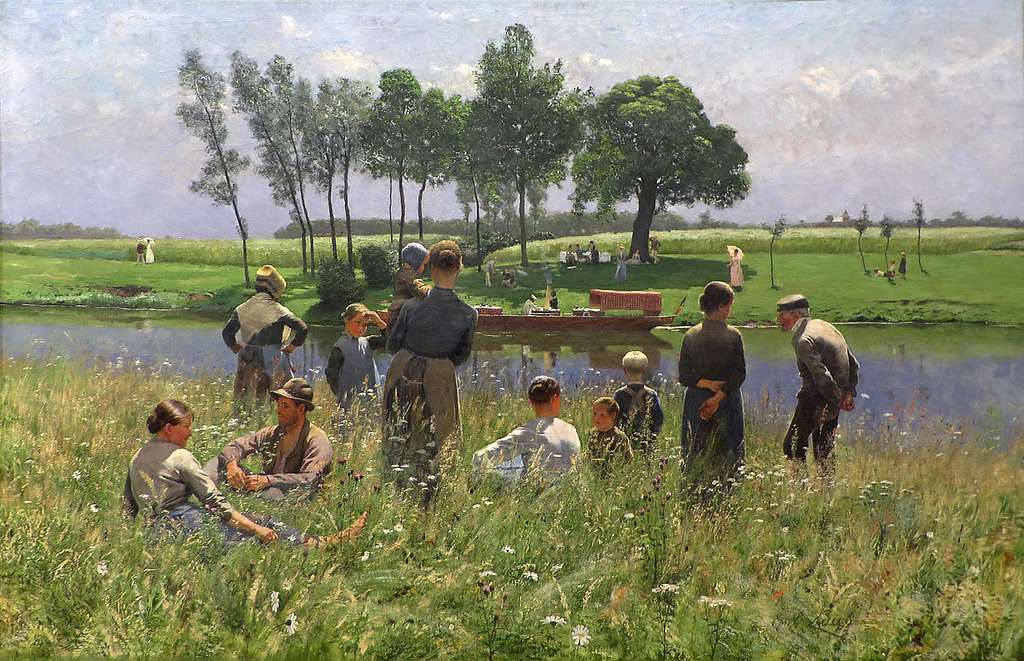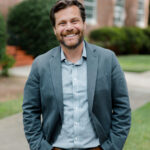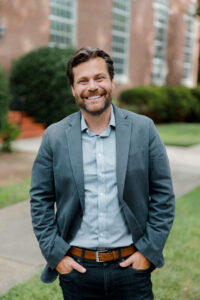There is a passage at the end of Nathan Hill’s 2024 novel Wellness in which Hill’s protagonist, the photographer and art professor Jack Baker, reflects on the unique nature of his photography, which he develops “not with pigment but with time.” By using already exposed film as his medium, and by allowing various chemicals to interact with the aging film, Baker is able to create fascinating and otherwise unimaginable images that represent “the highest, truest, most pure form of photography…since, after all, the single most essential instrument in the entire photographic process is not the camera but [time].”
I have been thinking about Baker’s approach to photography lately because of a fellowship I’m currently completing at Berkeley Divinity School at Yale, wherein a church group and I have been prayerfully grappling with the difficulty of getting folks, particularly younger folks, to commit to doing “life together.”
This particular challenge is by no means a new one, but it weighs more heavily on churches today due to the societal shift toward an “attention economy.” Simply put, people feel increasingly pressured today not only to live their lives, but to perform them—and the ordinary experience of living in the same place, and being with the same people, and doing the same thing (week after week, year after year, across the entirety of one’s life) does not make for a sexy Instagram post or a scintillating TikTok video, just as the excitement quotient of such a life pales in comparison to that of a life spent chasing new experiences.
To wit: at an event just the other night I overheard a young thirtysomething, while describing how excited she and her husband are about a new church they’ve just joined, say, “But they asked my husband to serve a three-year term on this thing they call ‘the vestry.’ And I asked him if that meant we, like, had to stay there for three years—because as much as we love this church, I don’t like to feel stuck.”
This young woman unwittingly gave voice to the prevailing logic of the twenty-first century: to feel “stuck” is inherently soul-crushing; therefore, the key to spiritual well-being is to always keep our options open.
With that casual statement, this young woman unwittingly gave voice to the prevailing logic of the twenty-first century: to feel “stuck” is inherently soul-crushing; therefore, the key to spiritual well-being is to always keep our options open.
Through this yearlong fellowship, our church group has concluded that this prevailing logic is sadly misguided. Because if we are living in an attention economy, then “new experiences”—which are the spiritual equivalent of flashy IPOs (to use another financial term)—often prove, once invested in, to have been wildly overvalued.
In fact, this was the most helpful takeaway of my fellowship year: the insight that if we are indeed living in an attention economy, we would do well to conceive of our spiritual sickness in financial terms—because if we can get the metaphor right, we stand a better chance of finding the right medicine.
Ask any financial adviser and he or she will tell you: if you want the most dependable return on your investment, don’t play the market—that is, don’t keep moving your money in and out of different stocks like a day trader, hoping for large short-term gains; instead, find a proven mutual fund and keep steadily investing in that, never touching the capital but letting it grow (slowly, steadily) at compound interest.
The prevailing logic of twenty-first century American culture suggests that the pursuit of new experience is, in and of itself, a necessary form of capital without which one is ipso facto barred from the possibility of living a rich life. But my own experience, corroborated by many of the people I’ve talked with, suggests that the pursuit of new experience is, just as often as not, the cause of our despair not the cure; for to keep shifting attention from one thing to the next is almost always to drain one’s spiritual and mental and emotional bank account, not to deliver a meaningful return.
Meanwhile, contra popular opinion, there is something life-giving about rooting oneself in a single community—about investing ourselves in a mutual fund, so to speak—and watching the investment slowly grow at compound interest. Here, through the alchemy of time, something like washing dishes in the fellowship hall on Wednesday nights can slowly morph from a job to a joy; and certain people can slowly grow from annoying to endearing; and funerals can cease feeling like tales of a life to feeling more like testaments to a life. And on and on, our small deposits slowly growing into a larger reality that, in the beginning, seemed unimaginable.
In short, Nathan Hill’s Jack Baker is right: time is the most essential instrument in the entire process—in life every bit as much as photography, in spiritual development every bit as much as in the development of film. For the key to realizing dependable spiritual returns in an attention economy lies not in moving from place to place and experience to experience, but in finding a secure mutual fund and entrusting ourselves to the enduring wisdom of compound interest.
Image Credit: Émile Claus, “Le pique-nique” (1887) via picryl




